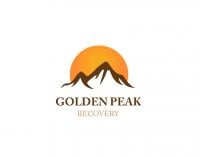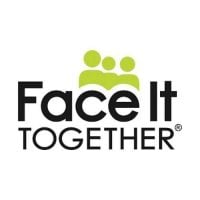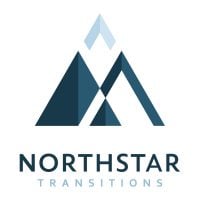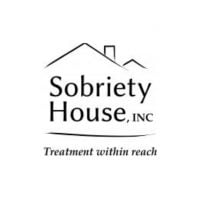
Clinic for Child and Family Psychology
Drug Rehab Center in Denver, Colorado
- Mental Health
- Eating Disorder
Clinic for Child and Family Psychology in Denver is an accredited center that specializes in providing mental health services for children and their families, with a focus on addiction and substance abuse treatment, offering evidence-based therapies, educational services, and various support services.
About Clinic for Child and Family Psychology in Colorado
Clinic for Child and Family Psychology in Denver, Colorado is a center dedicated to providing mental health services for children and their families. This clinic offers a welcoming, safe, and secure environment for individuals in need of assistance, providing comprehensive assessments and comprehensive treatment plans tailored to meet the individual needs of each client. It specializes in providing help with addiction and substance abuse for children and their families, with the goal of helping individuals find lasting recovery.
At Clinic for Child and Family Psychology in Denver, individuals and families receive evidence-based treatments such as cognitive-behavioral therapy, marital and family counseling, 12-step programs, and relapse prevention strategies. The clinic also offers educational services, including support groups and educational classes on addiction, relapse prevention, and family dynamics. In addition, they provide support and resources to individuals and families who are navigating their way through the recovery process.
Clinic for Child and Family Psychology in Denver is accredited by the American Psychological Association, the National Association of Alcohol and Drug Abuse Counselors, and the Association of Addiction Professionals. It is also licensed by the State of Colorado and has received awards from the Substance Abuse and Mental Health Services Administration and the Colorado Department of Human Services. Furthermore, this clinic offers a range of support services, such as overnight and day respite care for parents who need extra help managing their children's care, as well as online support groups and clinical services.
Genders
Ages
Modality
Additional
Conditions and Issues Treated
Levels of Care Offered
This center offers a variety of custom treatment tailored to individual recovery. Currently available are Outpatient, with additional therapies available as listed below.
Outpatient treatment is often used for drug addicts in drug rehab. Outpatient treatment consists of counseling and therapy sessions. This form of treatment is also called ‘day-treatment’. The outpatient treatment process begins with the addict’s initial detox period, lasting about ten days.
Outpatient treatment is used for those who are at moderate risk for ‘slipping back’ into the addiction, for those who:
- Are not currently experiencing any side effects from withdrawal and can handle social pressure
- Can handle stressors that might trigger relapse
- Have a stable living environment or have moved out of their previous environment, which was not conducive to being sober
- Have a support system that allows them to go to a facility a few times a week while still keeping their current responsibilities
- Have no legal obligations, being either on parole or probation, that require them to seek treatment at a mandatory facility
- Are not currently experiencing any side effects from withdrawal and can handle social pressure
- Have a stable living environment or have moved out of their previous environment, which was not conducive to being sober
Therapies & Programs
Because no single treatment is effective for all addicts, the goal of treatment and therapy should be to figure out what works best for each individual. Tolerance and withdrawal levels differ from person to person, affecting the treatment intensity required. Addiction treatment should aim to help addicts develop healthy coping mechanisms for dealing with their addiction and its underlying causes.
Couples therapy works with clients and significant others in a professional capacity to improve relationship dynamics. This can be helpful for addicts who are trying to marry the idea of recovery into their work, family, social lives – any aspect that has to do with relationships. Through counseling sessions, addicts will have an opportunity to talk about their addiction with professional partners.
Family therapy is beneficial for people who are in addiction treatment services because it offers addicts the opportunity to work with their family members to better understand what led them to make choices that contributed to their addiction.
This type of therapy helps family members reach a deeper understanding of how they can best support their loved one during recovery. It also helps the addict better understand their own motivations and triggers that led them to turn to substance abuse.
Family therapy can help addicts in the following ways:
- Assists family members in processing difficult feelings so they don’t blame or resent recovering addicts
- Assists family members in understanding how addiction has impacted the addict and everyone who is involved with them
- Allows the addict to take responsibility for their actions, while encouraging improved communication skills
- Helps family members understand how to best support an individual in recovery so addicts don’t relapse again.
Group therapy can help build a stronger support system and give addicts in Denver, CO insight into their addiction that they gain through shared conversations. Group therapy occurs in a controlled group environment, exclusive of one on one meetings. This makes it safer for patients to feel comfortable sharing the struggles they’re going through and gaining perspective.
Trauma therapy is beneficial for people who are recovering from drug addiction because it helps them heal from past traumas that may have caused them to turn to harmful substances or led them to experience negative emotions that contributed to their destructive behaviors.
This type of treatment works by processing difficult experiences so individuals can learn how to process these events without having to turn to substances for coping.
Trauma therapy can help addicts in the following ways:
- Helps individuals understand their experiences and emotional responses to difficult events, including why they turned to drugs or alcohol
- Provides them with comfort and support while working through difficult emotions related to these traumatic experiences
- Offers an opportunity for addicts to have a voice and be heard, which can improve their self-esteem
- Can help them develop coping skills so they can better respond to triggers instead of turning to substance abuse.
Dialectical Behavior Therapy (DBT) is a cognitive-behavioral therapy that helps patients understand the relationship between their thoughts, feelings, and behaviors. It is beneficial for those whose addictions and behaviors stem from severe mental health issues. The term “Dialectic” means the integration of opposites. In substance abuse, DBT refers to accepting the patient’s addiction and working to change their thoughts and behavior. It improves life skills such as controlling intense emotions without reacting impulsively, resolving interpersonal conflicts effectively, and promoting awareness about self and others.
Cognitive-behavioral therapy is a technique that is used to help people with addiction. Specifically, it is a way of identifying thoughts and behaviors that cause the addiction. It is typically used in an individual counseling session.
The content explains cognitive behavioral therapy and how it works to address some behaviors that may be leading to unintended consequences in their life, as well as its benefits for those seeking sobriety.
It works by helping people to talk through their issues and addressing the thoughts that cause said behaviors. It is an excellent way of learning about oneself and one’s perception of the world.
Payment Options Accepted
For specific insurance or payment methods please contact us.
Department of Psychology College of Arts, Humanities & Social Sciences Associated Centers
Discover treatment facilities under the same provider.
No items foundLearn More About Department of Psychology College of Arts, Humanities & Social Sciences Centers
Additional Details
Specifics, location, and helpful extra information.
Denver, Colorado 80210 Phone Number(303) 871-3306 Meta DetailsUpdated November 25, 2023
Staff Verified
Clinic for Child and Family Psychology Patient Reviews
There are no reviews yet. Be the first one to write one.

Location
2155 S Race St
Denver, CO 80210
(303) 871-3306
Department of Psychology College of Arts, Humanities & Social Sciences
Language
- About Clinic for Child and Family Psychology in Colorado
- Conditions and Issues Treated
- Levels of Care Offered
- Therapies & Programs
- Payment Options Accepted
- Department of Psychology College of Arts, Humanities & Social Sciences Associated Centers
- Additional Details
- Clinic for Child and Family Psychology Patient Reviews
Denver, Colorado Addiction Information
The Centennial State has slipped to a ranking of 12th in the country for drug abuse. Each year around 24% of the state's population uses illegal drugs while nearly 5% of its population abuses alcohol. Substance-related deaths in Colorado were responsible for 15.12% between 2008 and 2017. Fortunately, Colorado drug and alcohol addiction treatment are available to help a person overcome addiction.
Drug addiction in Denver, Colorado, is quite serious. In 2012, there were 974 drug overdose fatalities in the area, which has likely only gone up in recent years. The city has an estimated 34,000 marijuana users reporting past-month usage in 2016. The most common drugs abused are methamphetamine, heroin, and marijuana. Some popular treatment options include inpatient rehab, outpatient rehab, and detoxification programs.
Treatment in Nearby Cities
- Yuma, CO (122.7 mi.)
- Fairplay, CO (63.6 mi.)
- Arvada, CO (10.9 mi.)
- Cascade, CO (54.0 mi.)
- Idaho Springs, CO (29.6 mi.)
Centers near Clinic for Child and Family Psychology

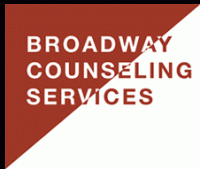

The facility name, logo and brand are the property and registered trademarks of Clinic for Child and Family Psychology, and are being used for identification and informational purposes only. Use of these names, logos and brands shall not imply endorsement. RehabNow.org is not affiliated with or sponsored by Clinic for Child and Family Psychology.
